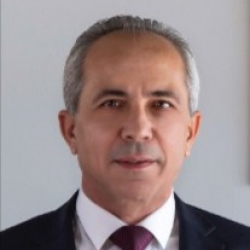
Ejder Yelken
Foreign Language(s): English, Greek
Education:
BSc Chemical Engineering - Boğaziçi University (1984)
MSc Economics - Eastern Mediterranean University (2000)
PhD Educational Economics and Planning - Ankara University (2016) (PhD Thesis: Reshaping Education by International Assessments: The context, scope and Transformative Impact of PISA)
Information
He has been involved in education delivery and management, with roles in teaching, school administration, preparation of educational strategic plan, and lecturing in universities. He offered courses in TED University and Social Sciences University of Ankara as a part time academic staff. Turkish Education System and School Management, Sustainable Development Goals and Future of Work (MSc level) are among those courses. He has participated in many seminars, conferences as an invited speaker, mostly on education-employment link.
He is Director of Research & Skills in INOVEDS, a research and consultancy company with expertise on EU programs and project development. As part of his work he has been involved in training programs, consultancy, ToR preparation, procurement, independent evaluation for public institutions, CSOs and international organizations. ILO, Council of Europe, Güven Education and Health Foundation, GIZ, Expertise France, Ministry of Transportation and Infrastructure, Directorate of EU Affairs are among the references.
His research interests and services are mainly shaped around social challenges, such as youth employment, ageing population, social impact of investments, employment in renewable energy sector, vocational education programs of refugees, child labour, etc.
He strongly believes that education is a key for every individual to take a place in social and economic life, and the same is valid for prosperity, economic well-being and peace of communities. However, he argues that answering educational needs in current new age of information by relying on a century old industry type education system is not possible. To establish a solid and realistic link between education and employment; skills, future of work, micro-credentials are some of new perspectives and research fields to be focused with international collaboration.